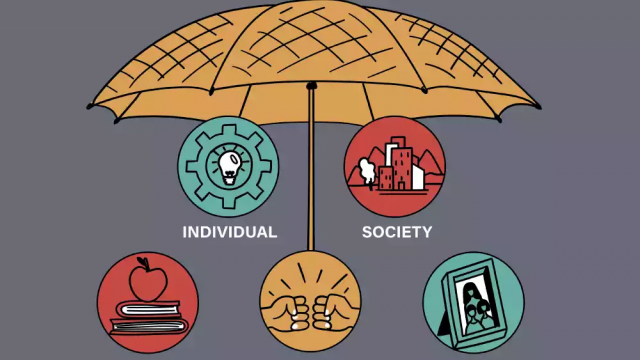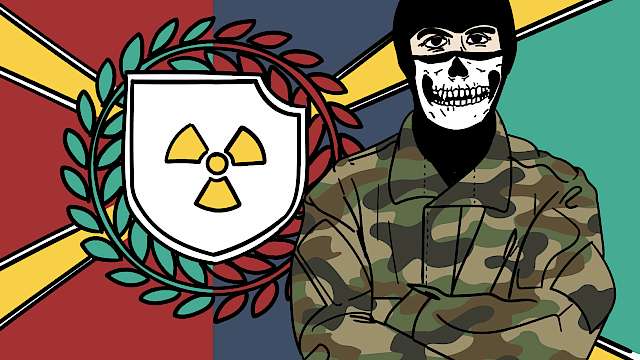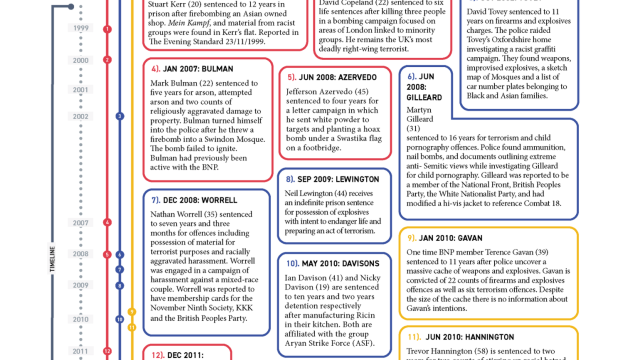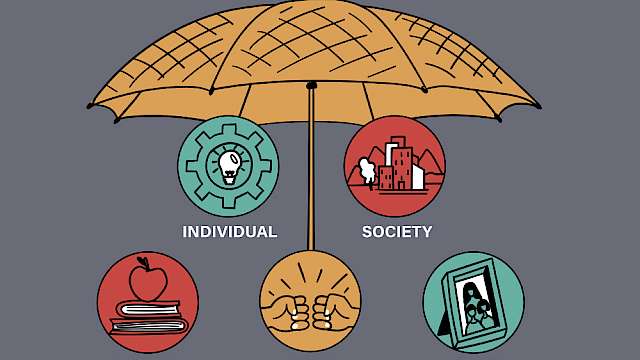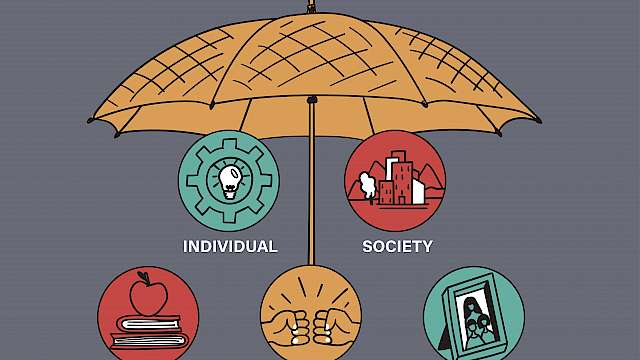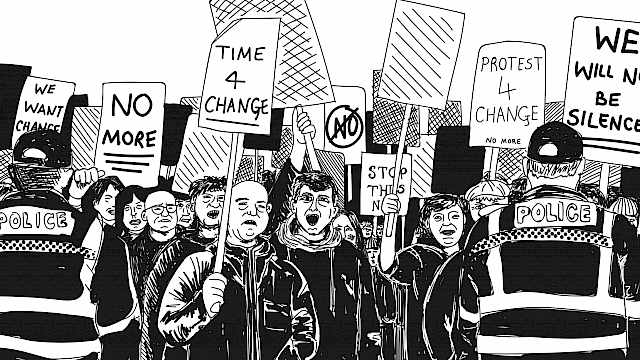Ben Lee
CREST Outputs
Projects
Articles
Academic Publications
Informal Countermessaging: The Potential and Perils of Informal Online Countermessaging
Online countermessaging—communication that seeks to disrupt the online content disseminated by extremist groups and individuals—is a core component of contemporary counterterrorism strategies. Countermessaging has been heavily criticized, not least on the grounds of effectiveness. Whereas current debates are focused on the role of government and large organizations in developing and disseminating countermessages, this article argues that such approaches overlook the informal production of countermessages. Recognizing the appetite for “natural world” content among those engaged in countermessaging, this article highlights some of the potential benefits of informal approaches to countermessaging. At the same time, the article also acknowledges the risks that may result from closer working between countermessaging organizations and informal actors.
(From the journal abstract)
Benjamin Lee. 2018. ‘Informal Countermessaging: The Potential and Perils of Informal Online Countermessaging’. Studies in Conflict & Terrorism: 1–17. https://doi.org/10.1080/1057610X.2018.1513697.
Countering Violent Extremism Online: The Experiences of Informal Counter Messaging Actors
The online space is a haven for extremists of all kinds. Although efforts to remove violent and extremist content are increasing, there is a widely accepted need to also contest extremist messages with counter messages designed to undermine and disrupt extremist narratives.
While the majority of academic focus has been on large and well‐funded efforts linked to governments, this article considers the experiences of informal actors who are active in contesting extremist messaging but who lack the support of large institutions.
Informal actors come without some of the baggage that accompanies formal counter message campaigns, which have been attacked as lacking in credibility and constituting “just more government propaganda.” This has been noted by some of the wider countering violent extremism industry and the appetite for incorporating “real‐world” content in their campaigns seems to be rising.
This article fills a gap in our knowledge of the experiences of informal counter messaging actors. Through a series of in‐depth qualitative interviews it demonstrates that, despite the potentially serious risks of incorporating greater levels of informal content, there is an appetite among informal actors to engage with formal campaigns where they can be selective over who they work with and maintain a degree of control.
(From the journal abstract)
Benjamin Lee, 2019. Countering Violent Extremism Online: The Experiences of Informal Counter Messaging Actors. Policy & Internet. https://doi.org/10.1002/poi3.210
Ideological Transmission in Extremist Contexts: Towards a Framework of How Ideas Are Shared
Despite their centrality in academic and policy debates about radicalization and political violence, ideologies have been conceived narrowly, as cognitive, top-down, coherent and systematic.
In general, those who have used the concept of ideology have failed to draw on ideological theory or on recent insights about its practice and embodiment, or location in space and time.
Our interest is less in the content of ideology than in how it is shared by those for whom it matters. We offer an interpretive framework, based on six key questions about ideological transmission: What ideas, beliefs, and values are shared, how and why, by whom, and in which spatial and temporary contexts?
Following a discussion about the methodological pros and cons of the framework, it is tested on a series of interviews with members of Aum Shinrikyo, the Japanese religious group responsible for the Tokyo subway attack in 1995. We assess the strengths and limitations of the framework for analysing the various dimensions of ideological transmission before considering what it adds to our understanding of the relationship between extreme beliefs and violent behaviour.
(From the journal abstract)
Benjamin Lee, Kim Knott. (2022) Fascist aspirants: Fascist Forge and ideological learning in the extreme-right online milieu. Behavioral Sciences of Terrorism and Political Aggression 14:3, pages 216-240.
https://doi.org/10.1080/21567689.2020.1732938Fascist aspirants: Fascist Forge and ideological learning in the extreme-right online milieu
Learning in extremist settings is often treated as operational, with little regard to how aspiring participants in extremist settings engage with complex and abstract ideological material. This paper examines learning in the context of the amorphous network of digital channels that compose the extreme-right online milieu. Through an in-depth qualitative analysis, we explore how well the prevailing model of extremist ideological learning (in ‘communities of practice’) accounts for the behaviour of aspiring participants of Fascist Forge, a now-defunct extreme-right web forum. The findings suggest that some of the social aspects of communities of practice have been replicated in the online setting of Fascist Forge. However, for a combination of technical and ideological reasons, the more directed and nurturing aspects of learning have not. Several issues are raised about the role of ideological learning in online communities, notably the open accessibility of extremist material, the lack of ideological control leading to potential mutation and innovation by self-learners, and the role of digital learning in the preparation, shaping and recruitment of individuals for real world organising and activism.
(From the journal abstract)
Lee, B., & Knott, K. (2021). Fascist aspirants: Fascist Forge and ideological learning in the extreme-right online milieu. Behavioral Sciences of Terrorism and Political Aggression, 1–25.
https://doi.org/10.1080/19434472.2020.1850842
Projects
Articles
Academic Publications
Informal Countermessaging: The Potential and Perils of Informal Online Countermessaging
Online countermessaging—communication that seeks to disrupt the online content disseminated by extremist groups and individuals—is a core component of contemporary counterterrorism strategies. Countermessaging has been heavily criticized, not least on the grounds of effectiveness. Whereas current debates are focused on the role of government and large organizations in developing and disseminating countermessages, this article argues that such approaches overlook the informal production of countermessages. Recognizing the appetite for “natural world” content among those engaged in countermessaging, this article highlights some of the potential benefits of informal approaches to countermessaging. At the same time, the article also acknowledges the risks that may result from closer working between countermessaging organizations and informal actors.
(From the journal abstract)
Benjamin Lee. 2018. ‘Informal Countermessaging: The Potential and Perils of Informal Online Countermessaging’. Studies in Conflict & Terrorism: 1–17. https://doi.org/10.1080/1057610X.2018.1513697.
Countering Violent Extremism Online: The Experiences of Informal Counter Messaging Actors
The online space is a haven for extremists of all kinds. Although efforts to remove violent and extremist content are increasing, there is a widely accepted need to also contest extremist messages with counter messages designed to undermine and disrupt extremist narratives.
While the majority of academic focus has been on large and well‐funded efforts linked to governments, this article considers the experiences of informal actors who are active in contesting extremist messaging but who lack the support of large institutions.
Informal actors come without some of the baggage that accompanies formal counter message campaigns, which have been attacked as lacking in credibility and constituting “just more government propaganda.” This has been noted by some of the wider countering violent extremism industry and the appetite for incorporating “real‐world” content in their campaigns seems to be rising.
This article fills a gap in our knowledge of the experiences of informal counter messaging actors. Through a series of in‐depth qualitative interviews it demonstrates that, despite the potentially serious risks of incorporating greater levels of informal content, there is an appetite among informal actors to engage with formal campaigns where they can be selective over who they work with and maintain a degree of control.
(From the journal abstract)
Benjamin Lee, 2019. Countering Violent Extremism Online: The Experiences of Informal Counter Messaging Actors. Policy & Internet. https://doi.org/10.1002/poi3.210
Ideological Transmission in Extremist Contexts: Towards a Framework of How Ideas Are Shared
Despite their centrality in academic and policy debates about radicalization and political violence, ideologies have been conceived narrowly, as cognitive, top-down, coherent and systematic.
In general, those who have used the concept of ideology have failed to draw on ideological theory or on recent insights about its practice and embodiment, or location in space and time.
Our interest is less in the content of ideology than in how it is shared by those for whom it matters. We offer an interpretive framework, based on six key questions about ideological transmission: What ideas, beliefs, and values are shared, how and why, by whom, and in which spatial and temporary contexts?
Following a discussion about the methodological pros and cons of the framework, it is tested on a series of interviews with members of Aum Shinrikyo, the Japanese religious group responsible for the Tokyo subway attack in 1995. We assess the strengths and limitations of the framework for analysing the various dimensions of ideological transmission before considering what it adds to our understanding of the relationship between extreme beliefs and violent behaviour.
(From the journal abstract)
Benjamin Lee, Kim Knott. (2022) Fascist aspirants: Fascist Forge and ideological learning in the extreme-right online milieu. Behavioral Sciences of Terrorism and Political Aggression 14:3, pages 216-240.
Fascist aspirants: Fascist Forge and ideological learning in the extreme-right online milieu
Learning in extremist settings is often treated as operational, with little regard to how aspiring participants in extremist settings engage with complex and abstract ideological material. This paper examines learning in the context of the amorphous network of digital channels that compose the extreme-right online milieu. Through an in-depth qualitative analysis, we explore how well the prevailing model of extremist ideological learning (in ‘communities of practice’) accounts for the behaviour of aspiring participants of Fascist Forge, a now-defunct extreme-right web forum. The findings suggest that some of the social aspects of communities of practice have been replicated in the online setting of Fascist Forge. However, for a combination of technical and ideological reasons, the more directed and nurturing aspects of learning have not. Several issues are raised about the role of ideological learning in online communities, notably the open accessibility of extremist material, the lack of ideological control leading to potential mutation and innovation by self-learners, and the role of digital learning in the preparation, shaping and recruitment of individuals for real world organising and activism.
(From the journal abstract)
Lee, B., & Knott, K. (2021). Fascist aspirants: Fascist Forge and ideological learning in the extreme-right online milieu. Behavioral Sciences of Terrorism and Political Aggression, 1–25.
